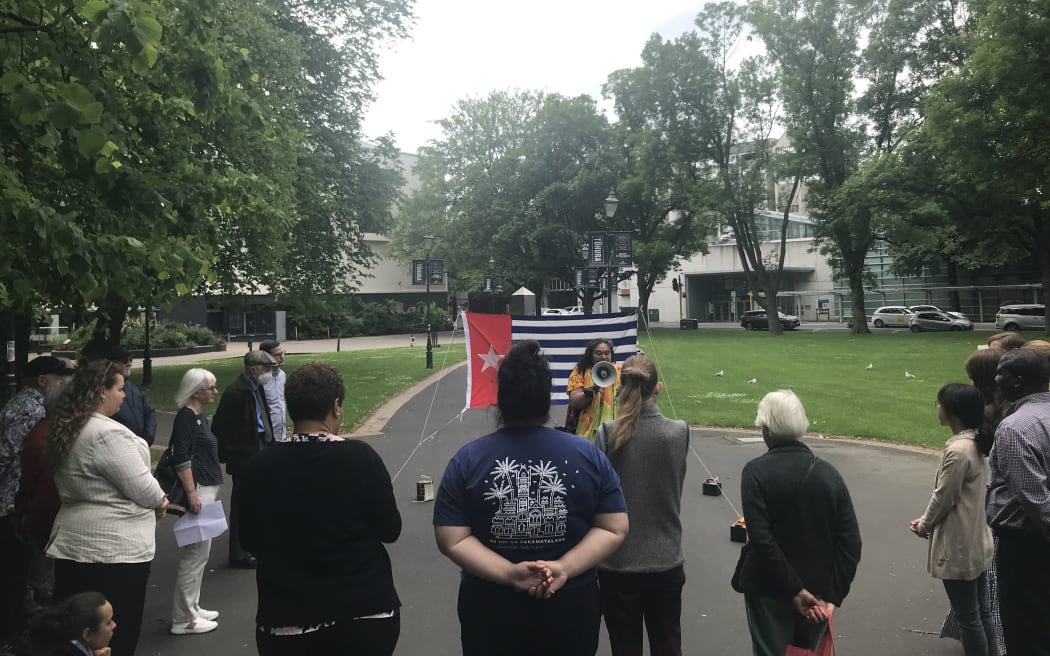By Lydia Lewis, RNZ Pacific journalist
Reports of threats by Indonesia against “Free West Papua” activists have come to light on the anniversary of the first raising of West Papua’s emblem of independence.
“The security level is increased, they send direct threats, phone calls or SMS and in the past three days many of our West Papuan activists have [had] phone messages, propaganda messages,” says Canberra-based Free West Papua activist and musician Ronny Ato Buai Kareni.
December 1, 2022, marks 61 years since the first raising of West Papua’s symbol of independence, the Morning Star flag.
“The Morning Star flag brings a lot of emotions, it is about honouring those who have fought and died, assassinated in the name of that Morning Star flag. It is also a symbol of resistance and hope that West Papua will be free one day,” Kareni said.
In previous years, the Indonesian military and police have responded with increased violent oppression around this day, arresting and killing those they perceive as pro-independence activists in West Papua, a spokesperson from Peace Movement Aotearoa said.
The flag has been raised in solidarity with freeing West Papua from occupation by Indonesia, at events around the world.
“Seeing the young Papuans coming out today, it’s heartening,” Kareni said.
Events have been held across the Pacific, Aotearoa and Australia.

Decolonisation MOU signed
A memorandum of understanding has been signed by youth and elders fighting for decolonisation in the Pacific.
“We wanted to strengthen, renew efforts, that vision that was already established in the 1970s, 1980s,” Kareni said.
Kareni presented the Morning Star flag to Hilda Halkyard-Harawira, known by the next generation of activists as “Aunty Hilda”, at the Nuclear Connections Across Oceania conference.
“As renewed strength between young and old and to continue the legacies of the Pacific solidarity and more so in the indigenous solidarity of the national liberation struggles,” Kareni said.
Halkyard-Harawira was a co-organiser for the first Te Hui Oranga o Te Moana Nui a Kiwa in 1982.
Decades on, she is still fighting for freedom from colonisation.
“We have failed because of our mad allegiance to the Indonesian government who are illegal occupiers of West Papua,” Halkyard-Harawira said.
Ōtepoti Declaration on oppression
A call for coordinated action for campaigns that impact the human rights, sovereignty, wellbeing and prosperity of Pacific peoples across the region has been made by the Indigenous Caucus of the Nuclear Connections Across Oceania Conference.
“We remain steadfast in our continuing solidarity with our sisters and brothers in West Papua, who are surviving from and resisting against the Indonesian genocidal regime, injustice and oppression.
“We affirm the kōrero of the late Father Walter Lini, “No-one is free, until everyone is free!,” said in a joint statement released by the Indigenous Caucus.
This article is republished under a community partnership agreement with RNZ.
Article by AsiaPacificReport.nz




